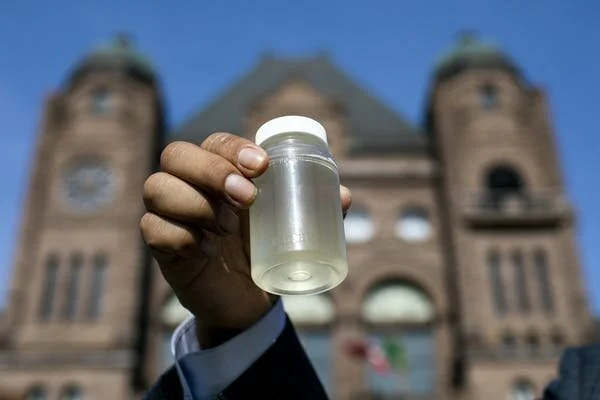Canada's provinces and territories are on board to help the federal government in its goal to halt land and water loss across the country. Federal Environment Minister Steven Guilbeault met with his counterparts in Ottawa today and said they're all on the same page about conservation targets. The Liberal government is leading a biodiversity strategy to protect 30 per cent of Canadian land and water by 2030. Prime Minister Justin Trudeau announced the target in 2020 and Canada was among the countries which pushed successfully for more than 190 other countries to follow suit at a UN biodiversity conference in Montreal last December.
Indigenous communities face unique challenges in funding infrastructure projects, experts say
A glaring example of this is the number of First Nations communities still dealing with long-term drinking water advisories. While the federal Liberal government pledged in 2015 to end all drinking water advisories by March of this year, 52 long-term advisories were in effect in 33 First Nation communities as of early April. According to Gale, Indigenous communities are increasingly taking matters into their own hands in leading and partnering in infrastructure projects. However, those projects tend to be small in size, typically valued at less than $25 million.
Government of Canada launches consultation process for new Canada Water Agency
“Through the Canada Water Agency, our government is looking to strengthen collaboration between the federal government, the provinces, territories, Indigenous peoples and other partners to find the best ways to safeguard our freshwater consultations are an important part of this process and I look forward to input from Canadians,” Terry Duguid said in a statement. Mr. Duguid is Parliamentary Secretary to Minister Wilkinson and has been key in the development process. The discussion paper, ‘Toward the Creation of a Canada Water Agency,’ presents key issues and provides an overview of the federal government’s existing activities to enhance freshwater management, and a virtual national freshwater policy forum is planned for January 27 and 28. A series of regional forums will be held in February that will provide additional opportunities to participate in consultations. The discussion paper and additional information can be found at placespeak.ca. Comments can be submitted until March 1.
Toward The Creation Of A Canada Water Agency Environment And Climate Change Canada Seeks Comments On Discussion Paper
The federal government seeks feedback on whether the objectives outlined in the Discussion Paper are the right objectives for the government to pursue and input on which objectives should be prioritized. Input is sought from provinces, territories, Indigenous peoples, local authorities, the private sector, non-government organizations, and the public. Feedback will inform the federal government's next steps in implementing the CWA. The deadline for providing feedback on the Discussion Paper is March 1, 2021. Information about where to send responses is provided in the Discussion Paper. In January 2021, the federal government will host a virtual national freshwater policy forum. A series of regional forums will be held in February 2021 to provide further opportunities for Canadians to participate in consultations on the Discussion Paper.
Water crisis in First Nations communities runs deeper than long-term drinking water advisories
In October, more than 250 members of the Neskantaga First Nation were evacuated to Thunder Bay after an oily sheen was found on their reservoir. The discovery left the community, located in northern Ontario, without access to running water. The evacuation drew attention to the federal government’s 2015 commitment to end all on reserve long-term drinking water advisories (in place for more than one year) by March 31, 2021. Neskantaga has been living under a boil-water advisory for 26 years.
Data gaps prevent assessment of most Canadian watersheds: WWF report
Spotty research and inconsistent monitoring have made it impossible to evaluate the health of most Canadian watersheds, a study has found. “It’s still largely unknown,” said Elizabeth Hendricks of the World Wildlife Fund, which has just released its second evaluation of the condition of Canada’s freshwater environments. Hendricks said the report points to the need for standardized, national water monitoring done by local communities.







